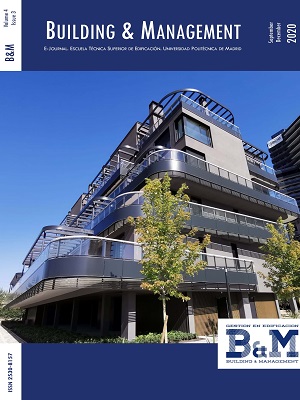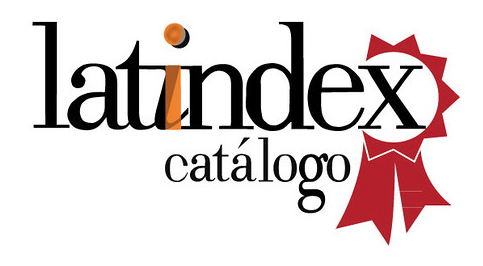DHW + PV: Use of self-consumption photovoltaic surpluses to generate domestic hot water = ACS + FV: Aprovechamiento de excedentes de fotovoltaica de autoconsumo para la generación de agua caliente sanitaria
DOI:
https://doi.org/10.20868/bma.2020.3.4678Palabras clave:
Photovoltaic, Domestic hot water, Passivhaus, NZEB, Fotovoltaica, ACS, Edificios de consume casi nuloResumen
Abstract
The implementation of a self-consumption photovoltaic installation in a single-family house with Passivhaus Classic certification is pre-sented. In this case the surpluses of photovoltaic production are diverted to an electrical resistance in the Sanitary Hot Water tank. The system converts electrical energy that is not self-consumed in the home, into thermal energy in the DHW tank for later use. Consumption derived from ACS is often higher than air conditioning in a Passive House, so a solution of this type reduces the energy bill and takes advantage of a renewable energy source to produce hot water, avoiding many of the maintenance problems that solar thermal energy systems usually suffered.
Resumen
Se presenta la implementación de una instalación fotovoltaica de autoconsumo en una vivienda unifamiliar con certificación Passivhaus Classic, en donde se desvían los excedentes de la producción fotovoltaica a una resistencia eléctrica en el depósito de Agua Caliente Sa-nitaria. El sistema convierte la energía eléctrica que no se autoconsume en la vivienda, en energía térmica en el depósito de ACS para su uso posterior. Los consumos derivados del ACS son a menudo superiores a los de climatización en una Passivhaus, así que una solución de este tipo reduce la factura energética y aprovecha una fuente de energía renovable para producir agua caliente, evitando muchos de los problemas de mantenimiento que suelen sufrir los sistemas de energía solar térmica.
Descargas
Referencias
Feist W., Peper S., 2015, “Energy efficiency of the Passive House Standard: Expectations confirmed by measurements in practice”. Passive House Institute Dr. Wolfgang Feist, Rheinstraße 44/46, 64283 Darmstadt, Alemania.
Grant N., Clarke A., 2010, “The importance of hot water system design in the Passivhaus”. Elemental Solutions, Withy Cottage, Little Hill, Orcop, Hereford, HR2 8SE, Reino Unido.
Parlamento Europeo, 2010, “DIRECTIVA 2010/31/UE DEL PARLAMENTO EUROPEO Y DEL CONSEJO, de 19 de mayo de 2010 relativa a la eficiencia energética de los edificios (refundición)”.
Descargas
Publicado
Número
Sección
Licencia
Los originales de la revista Building & Management, son propiedad de la Universidad Politécnica de Madrid, siendo necesario citar la procedencia de cualquier reproducción parcial o total.
Todos los artículos originales que se publican en Building & Management quedan sometidos a discusión y al comentario de nuestros lectores. Las opiniones deben enviarse a la dirección de correo electrónico de la revista, dentro del plazo de tres meses, contados a partir de la fecha de su publicación.
Los autores conservan los derechos de autor y garantizan a la revista el derecho de una licencia Creative Commons, Attribution-NonCommercial-NoDerivatives 4.0 International (CC BY-NC-ND 4.0), que permite a otros compartir el trabajo con un reconocimiento de la autoría y uso no comercial.
Los autores pueden establecer por separado acuerdos adicionales para la distribución no exclusiva de la versión de la obra publicada en la revista (por ejemplo, situarlo en un repositorio institucional o publicarlo en un libro).
Salvo indicación contraria, todos los contenidos de la edición electrónica Building & Management se distribuyen bajo una licencia de uso y distribución Creative Commons.




 <
< 








